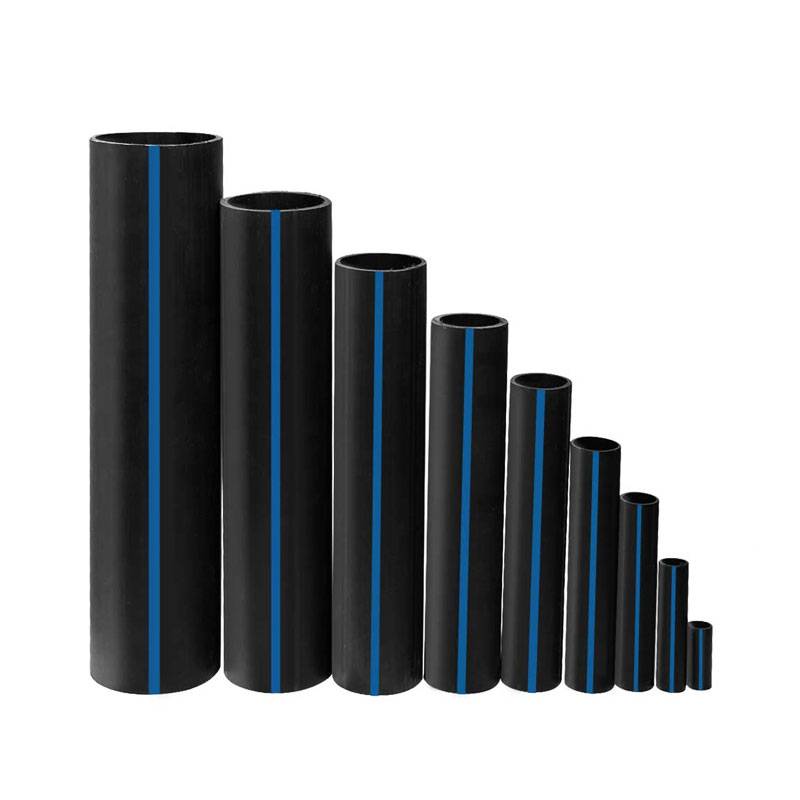Texas hdpe pipe manufacturer: Sustainable Innovations
Wiki Article
Understanding the Key Conveniences of HDPE Pipeline for Water and Wastewater Administration
Using HDPE pipeline in water and wastewater monitoring provides numerous benefits that warrant factor to consider. Its exceptional resilience and lengthy life-span make it a preferred choice for several projects. In addition, the material's resistance to corrosion and chemical damages enhances its integrity in numerous atmospheres. Nevertheless, the advantages prolong beyond simply durability and resistance. Exploring its cost-effectiveness and ecological influence exposes a lot more engaging reasons for its extensive fostering in modern frameworkRemarkable Sturdiness and Longevity

HDPE pipe sticks out for its remarkable toughness and long life, making it a favored option in water management systems. Constructed from high-density polyethylene, these pipes can stand up to substantial stress and stress and anxiety, ensuring reputable efficiency gradually. Their durable nature permits them to endure severe environmental conditions, including temperature changes and soil movements, which can cause various other products to fall short.
The life expectancy of HDPE pipes often exceeds 50 years, offering an economical service for towns and industries alike. Additionally, the material's light-weight homes simplify installation, reducing labor prices and timeframes. This toughness lessens the need for constant repair services or replacements, further boosting its economic appeal.
In water administration applications, the dependability of HDPE pipes implies fewer disturbances and improved solution continuity, making them integral to lasting infrastructure growth. The combination of resilience and long life solidifies HDPE's role as a cornerstone in efficient water management remedies.

Resistance to Rust and Chemical Damage
While several materials surrender to deterioration and chemical damage with time, HDPE pipes exhibit exceptional resistance, making them perfect for different water monitoring applications. This resilience comes from the molecular framework of high-density polyethylene, which is naturally non-reactive and does not wear away like metals or deteriorate from exposure to extreme chemicals. Consequently, HDPE is extremely efficient in environments with hostile compounds, such as wastewater systems that might have acids, bases, and natural solvents.
Additionally, HDPE pipes can stand up to ecological variables such as dirt level of acidity and saline problems, additionally enhancing their suitability for varied applications (hdpe pipe in stock Midland TX). Their capability to preserve structural integrity in time lowers the threat of leakages and failures, which is important in making certain the safety and security and integrity of water circulation and wastewater administration systems. The resistance to rust and chemical damages substantially adds to the overall performance and durability of HDPE piping solutions.
Cost-Effectiveness and Financial Benefits
When thinking about the financial effects of water management systems, the cost-effectiveness of HDPE pipelines becomes noticeable. These pipes offer reduced installment and maintenance prices compared to typical materials like steel or concrete. Their lightweight nature streamlines transportation and installment, resulting in lowered labor expenses. In addition, HDPE pipes display a long life expectancy, commonly exceeding half a century, which converts to fewer substitutes and lasting cost savings.The resistance of HDPE to corrosion and chemical damage decreases the requirement for costly repair work and substitutes. The pipelines also support reliable water flow, lowering power costs related to pumping systems. By minimizing leakages and water loss, HDPE pipelines add to considerable financial advantages for districts and industries alike. In general, the preliminary investment in HDPE piping can produce considerable financial returns over the life expectancy of the water administration system, making it a prudent option for sustainable facilities advancement.
Ecological Sustainability and Lowered Effect

Versatility and Adaptability in Setup
Due to their special residential or commercial properties, HDPE pipelines use amazing flexibility and adaptability in setup, making them appropriate for a large range of applications. Their lightweight nature permits easier handling and transport, decreasing labor prices and installment time. HDPE pipelines can be curved and formed to fit numerous terrains and job requirements, which is especially here beneficial in challenging environments.In addition, their resistance to corrosion and chemical damage permits setup in varied setups without the need for specialized safety coverings. The ability to fuse joints produces a continual, leak-free system, enhancing the overall stability and integrity of the installment. HDPE's flexibility additionally fits ground movement, minimizing the threat of damages in locations prone to moving soil. On the whole, these features make HDPE pipelines not just functional but also a favored option for water and wastewater monitoring systems.
Frequently Asked Inquiries
Just How Does HDPE Pipeline Contrast to PVC in Water Monitoring Applications?
HDPE pipeline offers exceptional versatility, resistance to rust, and durability compared to PVC. Its lighter weight facilitates easier installation, while its long lifespan lowers substitute costs, making HDPE a preferred selection in water monitoring applications.What Is the Life-span of HDPE Water Lines Under Typical Conditions?
Under typical conditions, HDPE pipes can have a lifespan varying from 50 to 100 years. Their resilience and resistance to corrosion add to their lasting performance in various applications, making them a reputable choice for facilities.Are HDPE Pipes Recyclable After Their Life Span?
Yes, HDPE pipelines are recyclable after their life span. Midland TX HDPE Pipe Fittings in Stock. They can be refined and repurposed into brand-new products, greatly reducing ecological impact and advertising sustainability within the industry, making them an environment-friendly choice for piping remediesWhat Is the Installment Process for HDPE Piping?
The installation procedure for HDPE pipes includes site preparation, trenching, pipe blend or mechanical signing up with, backfilling, and stress screening. Correct methods assure a sturdy and effective system for carrying water and wastewater efficiently.Can HDPE Pipes Be Utilized for Both Potable and Non-Potable Water Equipments?
Yes, HDPE pipelines can be utilized for both drinkable and non-potable water supply. Their adaptability, sturdiness, and resistance to deterioration make them appropriate for different applications, making certain risk-free and effective transportation of water in different contexts.Report this wiki page